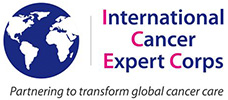Global_challenges_in_radiation_oncology
In the United States, much of the
research is focused on developing
new and very expensive technologies
and drugs – often without a major
therapeutic benefit. In resource
limited countries, basic oncology
care is frequently lacking.
In addition, the benefits of various
chemo-radiotherapy combinations
for a number of malignancies are
unknown as these populations have
not been adequately investigated.
For oncologists in these countries
who have marginal to adequate
resources, accrual to clinical trials
is virtually non-existent to minimal, due to the complexities of their population and
competing co-morbidities. As a result, there is a tremendous disparity in treatment
outcomes for these populations, compared to those in developed countries. Therefore,
we have asked a number of oncologists from different parts of the world to report
their experience.
Topics that will be covered include locally advanced breast and cervical cancer
(India, South Africa), human resources for cancer control in India, systematic review
of radiation resources in low and middle income countries, planning national
radiotherapy services, building sustainable partnerships through the newly formed ICEC
(International Cancer Export Corps), cancer disparities among American Indians, and
training radiation oncologists in these underserved parts of the world. Authors will
discuss “lessons learned” from their populations, practical suggestions to address these
disparities, and how we as a global oncology community can address, and mitigate these
global challenges.
Frontiers

